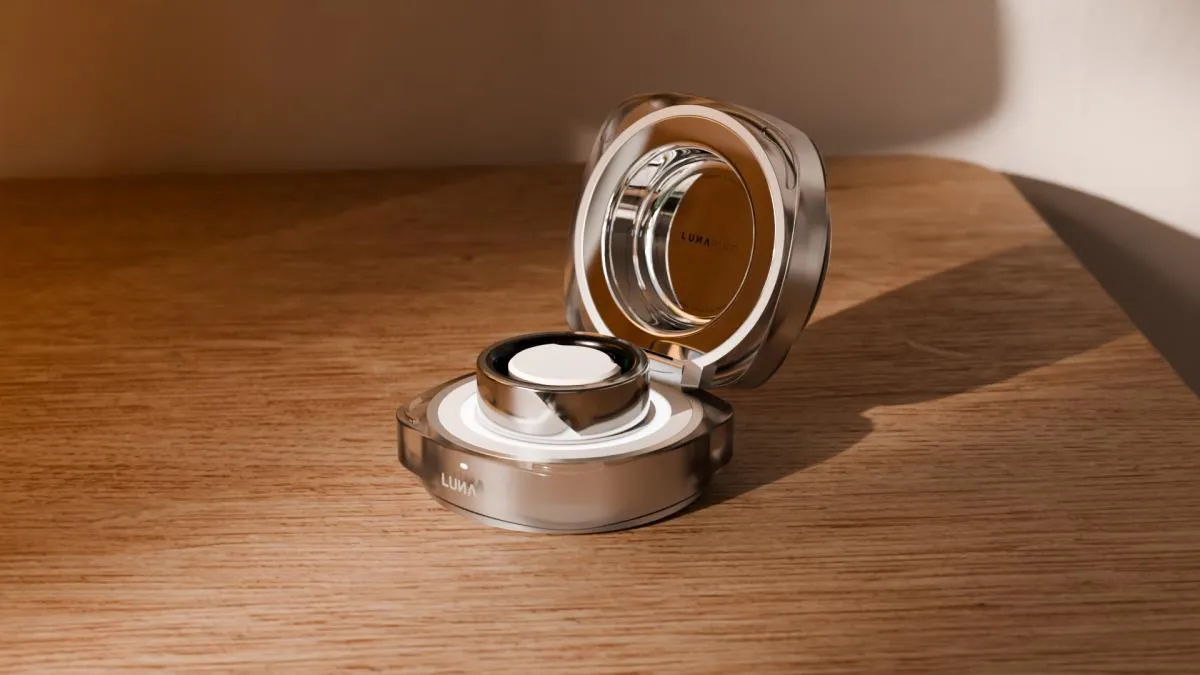
A new subscription-free smart ring has entered the market, providing consumers an alternative to popular options like the Oura ring. The Luna Ring 2.0, developed by the Indian wearables company Noise, is designed to meet the needs of users without the burden of ongoing subscription fees. Priced at a competitive $300 (or $349 when bundled with a charging case), the Luna Ring is approximately $50 less expensive than both the Oura and Ultrahuman smart rings.
The Luna Ring 2.0 marks its debut in the U.S. market, making it the first version of this innovative product available to American consumers. Noise first teased the Luna Ring at the CES event in January, and it has now officially launched, allowing tech enthusiasts and fitness aficionados to get their hands on this latest wearable technology.
According to the specifications, the Luna Ring 2.0 is equipped with a range of impressive features designed to enhance user experience. The ring and its accompanying app will track sleep, monitor heart rate, and measure blood oxygen levels. Additionally, the device is capable of auto-detecting activities such as walking and running, providing users with comprehensive insights into their health and fitness. A standout feature is the inclusion of an AI coach, which offers personalized recommendations based on user data.
Unlike its competitors, the Luna Ring 2.0 stands out with its claim of providing all software features for free. This is in stark contrast to Oura's monthly subscription fee of $5.99 and Ultrahuman’s paywall-restricted features. Noise seems to be positioning the Luna Ring as a cost-effective solution without compromising on functionality. For those interested in understanding the differences in cost, a full comparison between the Oura Ring, Ultrahuman, and Luna is available, confirming that the Luna Ring will likely be the most budget-friendly option.
However, some aspects of Noise's comparison chart raise questions. The chart indicates that both Ultrahuman and Oura have the same battery life and charge time, which appears inaccurate based on user experiences. Generally, Oura is known for its longer battery life and quicker charging capabilities. Potential users will be keen to see if the Luna Ring can uphold its promises of a "4-7 days" battery life and "120 minutes" charge time, as these figures would place it in a competitive range with Ultrahuman.
One of the most compelling features of the Luna Ring 2.0 is its innovative charging case, which is not offered by either of its major competitors. According to Noise, this charging case provides an additional 30 days of battery life, which is a significant advantage for users on the go. For fitness enthusiasts, the ability to carry a charging case in a gym bag or during travel can be immensely beneficial, especially since many users prefer to remove their smart rings while lifting weights. The convenience of having a portable charging solution could be a game changer for many.
In summary, the Luna Ring 2.0 has arrived as an appealing, subscription-free alternative to existing smart rings like Oura and Ultrahuman. With its competitive pricing, innovative features, and unique charging case, it provides a compelling option for those seeking to track their health and fitness without the added cost of a subscription. As the market for wearables continues to evolve, the Luna Ring 2.0 stands poised to make a significant impact.